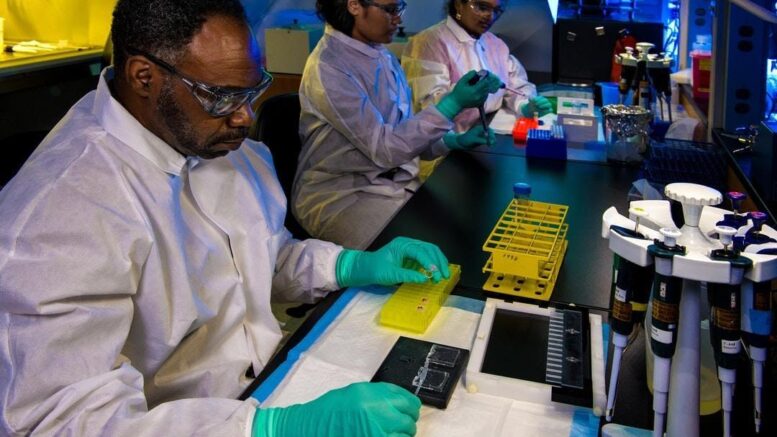For companies and developers, finding the right medical device contractor can be vital for the success of their new product. Today’s highly competitive market means that complex devices are being manufactured in all shapes and sizes, incorporating the latest technologies and developments in the medical industry.
In addition, the increasingly stringent regulatory standards for medical device manufacturing mean that companies with the necessary legal expertise and understanding are in high demand. Although pricing is one of the most important factors that companies prioritize in terms of medical device contract assembly, here are some other tips to keep in mind.
1. Consider The Size Of The Contract Manufacturer
Contract manufacturers have varying capabilities when it comes to production limits. A large contract manufacturer would typically have the most advanced technology and equipment to create your products at a high volume at greater cost savings. However, they tend to have higher minimum orders compared to smaller medical device contract manufacturers.
On the other hand, if you don’t require a large volume of goods manufactured, working with a smaller manufacturer has its benefits. This includes factors such as small-scale production, ease of communication, and potentially easier geographic accessibility. They can also pivot quickly and be responsive to your changing needs if you desire any design modifications.
Often, a mid-size manufacturing company may be the best fit for most companies. This is because they are typically the most flexible in terms of access to equipment and technology and tend to have a greater amount of expertise in the industry. They may also have a presence in more affordable manufacturing regions.
2. Check Their Level Of Accreditation
To determine whether a medical device manufacturer holds themselves to a high standard, it’s worth checking whether they possess the right accreditations. This includes ISO 13485 and FDA compliance. Complying with these standards ensures that the medical devices produced achieve compliance with European and worldwide regulatory requirements.
ISO 13485 accreditation also means that manufacturing companies produce less waste, have efficient cycle times, and provide medical devices and related services that consistently meet customer satisfaction with continual improvements made over time.

3. Prioritize Quality Management And Quality Control
Quality control is an important part of every production process. A good way to determine whether a manufacturer is a good fit for your business is to look at their previous projects. Having a proven track record of high-quality products that meet FDA regulations and global standards is a positive sign that you should be working with them.
Checking to see which other companies a manufacturer has also worked with can give you a more informed idea of their capabilities in producing a range of medical products. They should be able to provide sufficient documentation on how they inspect, test, and verify whether a medical product is ready for shipping.
In the event that a nonconforming or defective product is produced, you should also ask what corrective or preventative action the manufacturer will take. Especially for newer companies, working with a company that produces high-quality products can heavily impact your success.
Medical device contract managers should also work with reliable and qualified suppliers and offer traceability and risk monitoring.
4. Inspect If They Offer Cleanroom Capabilities
Working with a medical device contract manufacturer with cleanroom capabilities can reduce the risk of contamination. This can help ensure that all products are sterile since bacteria, air pollutants, and other microorganisms can negatively impact the way that a device functions in a medical setting.
Since cleanrooms have specific settings for humidity, airflow, and temperature control, this helps ensure that the products they make are free from dust and harmful microbes. This is of even greater importance due to the global pandemic and the increased importance of cleanliness.
5. Look Into Their Country Or Place Of Operation
The location where you manufacture your products will impact the price per unit. However, there are other considerations to keep in mind as well, including their level of technology, ability to speak your language, time zone, and more. If you need to communicate with them in real-time or make changes to a product, it’s worth working with a company that doesn’t have a big time difference from where you live.
Another thing to keep in mind is the cost of shipping, including any taxes, duties, and legal restrictions that you might encounter when outsourcing medical device production.
Political and geographic instability, including the impact of any natural disasters, is also something you should think about when it comes to meeting any timelines and volume requirements in the future.

6. Determine If Their Goals Are Compatible With Yours
There are several reasons why you might want to outsource production. The ideal type of medical device contract manufacturer you choose to work with depends on your own unique goals. For instance, if it is based on cost reduction, you should focus on comparing pricing models. If your goal is expansion, you should ensure that they can create larger volumes later.
Choosing a compatible manufacturer with the knowledge that is the most relevant to your business’ success should play a significant role in your decision-making process and the type of research you do.
7. Evaluate The Level Of Responsiveness
An often overlooked aspect in the decision-making process is looking at the responsiveness of a manufacturer. For instance, being able to be assisted by a customer service representative in real-time can be essential for time-sensitive projects. Check whether they offer support by telephone, chat, or email, and take into account any time zone differences that may impact your ability to get in touch with them.
Once you make initial contact with the company, you should take a tour of their facility to gain a more accurate impression of what they have to offer. Ask whether or not you can directly speak to the engineering and quality team to see how well they can answer your questions since this can indicate their level of knowledge of the product you aim to develop.
Being able to trust the medical device contract manufacturer you work with is essential for a successful and lasting partnership, especially when it comes to preventing production delays and troubleshooting any issues.
8. Compare Pricing Model
According to Deloitte, 70% of businesses turned to an outsourcing partner for cost reduction purposes in 2020. When considering price points, it’s best to strike a balance between quality and affordability. However, contract manufacturers that offer better quality products tend to use more sophisticated technology that comes with a higher price tag.
To ensure that you’re getting the best price, you should also take into account factors such as materials, assembly, and labor costs. Check whether they offer any bulk discounts and other savings so you can have a better idea of the final cost. It’s also a good idea to compare cost estimates from several manufacturers in case you can find a better deal.
9. Create A Clear Timeline And Define The Scope Of The Project
Once you’ve found a potential manufacturer to work with, you should check whether they can accommodate your time frame to get your product to launch without any delays. Even if you can offer a high-quality product, any delays can impact customer retention.

To make sure you’re on the same page, you should clarify the total scope of the project from start to finish, including how long it will take and what the expected results should be. There should be several boxes that allow you to check on production to ensure that things are progressing as expected.
Constantly following up with the contract manufacturer can help ensure compliance over time and avoid any anticipated delays. Figure out the process of approvals and feedback and create a clear communication structure and command system in order to make the production process as efficient as possible.
10. Always Read The Fine Print Before Contract Signing
A quality agreement is one of the most important parts of starting a partnership between companies. Relevant stakeholders should draft the agreement together to ensure that all the important information is there.
This can include the project’s scope, communication standards, quality management requirements, design controls, work location, protocols, length of the agreement, confidentiality, bill of materials and cost negotiations, liability matters, mold and tooling ownership, termination clauses, regulatory requirements and more.
Always check the fine print before signing off on anything, and ensure that your legal team performs a full review beforehand.
Conclusion
Although finding a trusted medical device contract manufacturer isn’t an easy task, doing your research and comparing various options can help you achieve your end-goal target and produce a profitable partnership. Each manufacturer will have something different to offer depending on your budget, product specifications, and geographic location.
